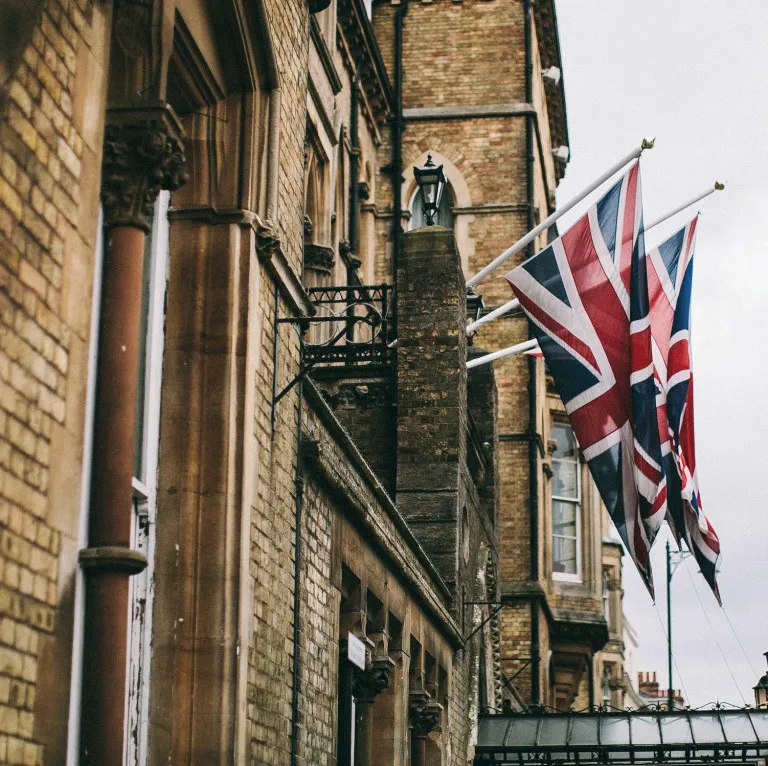British Protected Person
British protected persons have a rare form of nationality that arises from them living within the territory that is or was once controlled by the British state. This form of nationality is rare and can be confusing.
Get in touch with IAS at +44 (0)333 414 9244 to find out more about the services we offer to people with British protected persons status.
Read our 1001 reviews
Request a call back from our immigration experts
Benefits of Choosing IAS’ Immigration Lawyers
At IAS, we understand that every case and client is unique, so we provide bespoke assessment and support to each client. With us, you get a dedicated immigration lawyer who is dedicated to ensuring your application is successful. Enjoy the following benefits with IAS:

Compassionate support from an experienced immigration lawyer dedicated to your success



Support in gathering supporting documents and completing a high-quality application.



A personalised Letter of Representation to help compile a compelling case for approval



Continued support from your lawyer in the event of any complications.
Services we Provide
What is a British Protected Person?
If you are a British protected person, you are effectively stateless, living in a territory controlled or once controlled by the British Empire. This means that you will be a national that possesses a British passport, but you will not have direct access to British citizenship. The UK government lists three key reasons that someone will have this status. These included that you met the following requirements on 1st January 1983:
- You were a citizen or national of Brunei.
- You already had protected person status.
- You were born stateless in the UK or in one of its overseas territories, and one of your parents was a British protected person.
When the British Empire was expanding, it included a number of territories. The people inside of these territories were technically residing in a foreign land. Therefore, they were not British citizens. However, they were also not living within independent countries.
The British government created the protected persons status so that they would have some kind of nationality in 1981 under the British Nationality Act.
Rights of a British Protected Person
The main right afforded to protected persons is that they have held a British passport and the majority of the privileges that brings. This includes the following:
- Consular assistance while abroad from UK diplomatic posts.
- Exemptions from having to get a visa to come to the UK for less than six months.
- Can serve in non-reserved civil service posts.
- Can enlist in the British Armed Forces.
However, people with this status will still be missing out on a range of different rights. They will have no automatic right to live and work in the UK and will not be considered UK nationals when travelling in the European Union. This means that you will have to get a standard visa to visit the EU for any length of time and will not be eligible for ETIAS (European Travel Information and Authorisation System). Other restrictions include the following:
- You must pay a health surcharge to access National Health Service care if you are in the UK for over six months.
- You may not vote or stand for election.
- You cannot sit in the House of Lords.
Becoming a British Citizen
Because of these restrictions experienced by all people that are British protected persons, many choose to obtain British Citizenship. Additional rights you will experience as a British citizen include:
- A full and unrestricted British passport.
- The automatic right to live and work in the UK.
- The right to vote in national and local elections.
- Partial travel freedoms within the EU and other British partners’ territory.
- Citizenship for your children and easier immigration to the UK for your relatives.
Although protected persons are not automatically citizens, they will still find it easier to gain citizenship status. They will not have to undergo the usual naturalisation process. Instead, they can become British citizens by registration. This requires five years of residing in the UK, at least one year of which must be while possessing indefinite leave to remain.


Common Origins for British Protected Persons
The British Empire was an enormous institution occupying vast swathes of the world. Therefore, there are many different origins for British protected persons. These are different for protection by birth and protection by descent.
Protection by Birth
Protection by birth refers to being eligible for protected person status because of where you were born. Common circumstances of eligibility because of birth include the following:
- Kenya, where the applicant is born between 1921 and 1963.
- The Malay States if you were born before August 1957.
- Nyasaland for people born before July 1964.
- All people born in Tanganyika.
- All people with a father born in Brunei.
Protection by Descent
Protection by descent is a much more complicated matter. It requires key circumstances around your birth and your father’s birth to line up in a specific way.
The only common reason for protection by descent applies to people in Kenya. This occurs if your father was born in the Kenya Protectorate between 1920 and December 1963 and you were also born in the Kenya Protectorate.


How to Apply for British Protected Person Status
If you believe you fit one of these requirements, you will not have an automatic right to British protected person status. You must contact UK Visas and Immigration to apply to register for this unique status.
The Application Process
After you contact UK Visas and Immigration, HM Passport Office will get in touch. They will send you a letter asking for the documentation and information they will need to process your application. This may include any or all of the following:
- Proof of origin, such as identity documents and birth certificates.
- Any passport you hold with a colour copy of your personal details page.
- Parents’ documents, including their birth, marriage, and death certificates.
- Documents confirming they have no citizenship.
- Evidence of settlement in the UK.
The HM Passport Office has the right to ask for any further documentation they require on top of this. If you cannot provide any documentation they ask for, you will need to explain why and provide evidence.
If the government can confirm that you fit all of the requirements for protected person status, you will receive your protected person’s passport.
Can I Renew a Protected Persons Passport?
Like all passports, a protected person’s passport will eventually expire after several years. To maintain the right to travel, you must request to renew it with the HM Passport Office. This will also be the case if your passport is lost or stolen.
This is a simple process if you could submit all required documentation on your initial application. They will not need to see them again, and you should receive your new passport within a few months.
The process will be more complicated if you achieve protected persons status despite not having all the required documentation. In this case, you will be asked to send the documentation again, and you must re-justify why you cannot provide them.


How Can IAS Help?
At IAS, we can help you to understand if you are eligible for BPP status and can help you with the complex application procedure. Once your application is submitted, we liaise with the UK government to track its progress and keep you updated about when you can expect to learn the result of your application.
To find out how our expert team of immigration lawyers and advisers can help, contact us at +44 (0)333 414 9244. Alternatively, you can contact us online via our online chat.
Table of Contents
Table of Contents will appear here.Legal Disclaimer
The information provided is for general informational purposes only and does not constitute legal advice. While we make every effort to ensure accuracy, the law may change, and the information may not reflect the most current legal developments. No warranty is given regarding the accuracy or completeness of the information, and we do not accept liability in such cases. We recommend consulting with a qualified lawyer at Immigration Advice Service before making any decisions based on the content provided.
Frequently Asked Questions
The number of protected persons is starting to dwindle as many people lose this status. If you fit either of the three reasons defined by the government, you will lose your status. These are the following:
- You have become a national or citizen of another country.
- You became a British citizen.
- The territory you were connected with became its own independent country, and you became a citizen of this country.
If you lose your protected persons status, you will not be able to hold a British passport and will lose all the associated rights.
In order to gain a protected person’s order, you will need to be born, or a descendant of a British protectorate or British protected states.
The British protected states are as follows:
| Bahrain | Brunei | Kuwait |
| Malay States | Maldives | North Borneo and Labuan |
| North Borneo and Labuan | Qatar | Sarawak |
| Swaziland | Tonga | United Arab Emirates. |
There are even more British protectorates. They include:
| Aden Protectorates | Akrotiri and Dhekelia | Ashanti |
| Barotseland | Bechuanaland | Bunyoro |
| Cyprus Egypt Gambia Protectorate | Gilbert Islands | Ionian Islands |
| Kamaran | Kenya Protectorates | Malawi |
| Maldives | Nigeria Protectorates | North East & North West Rhodesia |
| Northern Somaliland | Northern Territories Protectorate | Nyasaland |
| Sierra Leone Protectorate | Solomon Islands | Swaziland |
| Transvaal | Tuvalu | Uganda |
| Zambia | Zanzibar |
Remember that many of these protected states and protectorates are now part of modern-day nations such as Malaysia, Nigeria, and Cyprus. Furthermore, many of them go by their old colonial name rather than the name that they go by now. Make sure to research your local history if your nation has been under colonial rule to find out if you are living in what used to be a protected state or protectorate.
Yes, even though these statuses have very similar names, they refer to entirely different things.
As stated earlier, a British protected person is somebody who would be stateless but has applied to be classed as a British national with partial rights under a British passport.
Meanwhile, someone under the UK Protected Persons Service (UKPPS) is a body associated with the police service to protect people at risk from serious crime. This includes witnesses to the crime, potential victims of honour-based violence, and people that continue to help the police in their investigations of serious crimes.


What our clients are saying
How our UK Immigration Lawyers can help
At the Immigration Advice Service our lawyers specialise in a wide range of UK visas, nationality and asylum applications and have represented clients in various successful complex and high-profile cases.















